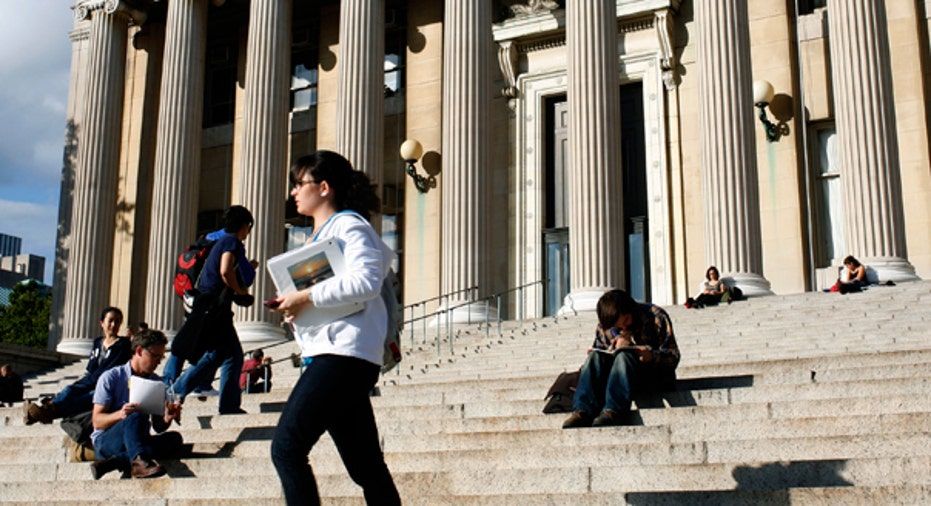What's the Best Way to Pay Student Loans?

Dear Debt Adviser, Hi, my name is Gus, and I currently owe about $17,500 in student loans. My interest rate is about 3.25%. How can I pay off my student loans in a short time period? I presently don't have any other debt, just my student loans. Thanks. -- Gus
Dear Gus, It's great that you want to quickly put your debts in the rearview mirror. But it's also important to keep a balanced approach to your finances. Having no debt is a great goal. Having no debt -- and savings as part of a larger plan -- is even better.
The best way to reach financial balance is to build a comprehensive debt-reduction, spending and savings plan. A good plan will allow you to save for your goals while protecting you from unexpected expenses and interruptions in income. It helps to visualize your goals as buckets, and you'll fill those buckets with income over time. For this plan to work, you must spend less than you earn and save the balance.
You have a nice low interest rate on your student loans, so you should have the flexibility to create a few buckets of your own. At a minimum, you should put some of your income into a bucket for emergencies.
One of my favorite ways to pay off a debt quickly is to use money you don't have ... yet! For example, when you receive your next raise in pay, add at least some of that money to your monthly student loan payment. Since you don't have the raise currently in your budget, you won't have to cut out anything to add more to your savings. You can keep on spending at your current pace with no pain and much gain. Have the money taken directly out of your check and sent to the lender or to a separate checking account just for this purpose.
Tax refunds, inheritance or any other unexpected income can also be used to pay down the balances more quickly.
To get an idea of what it would take to pay off your loans, let's do some math. At 3.25% interest, if you paid $754 per month, it would take you two years to pay off your balance of $17,500. To do so in three years would require a monthly payment of $510 and in four years would be a monthly payment of $389.
One other piece of advice I'll give you is to keep making "payments" even after your student loans are paid off. You will have already incorporated the payment into your spending plan and won't need the money for living expenses. If you keep up your direct deposit, you can pay yourself. Use the money to fund six months' to a year of living expenses in your emergency account. You can also save up for a car or a vacation.
Any money that you save for retirement now, when you are young, will count for much more over time as you compound your gains. Remember, retirement isn't just for old people. It's for young people, too, if they can afford it!
Good luck!
Bankrate's content, including the guidance of its advice-and-expert columns and this website, is intended only to assist you with financial decisions. The content is broad in scope and does not consider your personal financial situation. Bankrate recommends that you seek the advice of advisers who are fully aware of your individual circumstances before making any final decisions or implementing any financial strategy. Please remember that your use of this website is governed by Bankrate's Terms of Use.



















